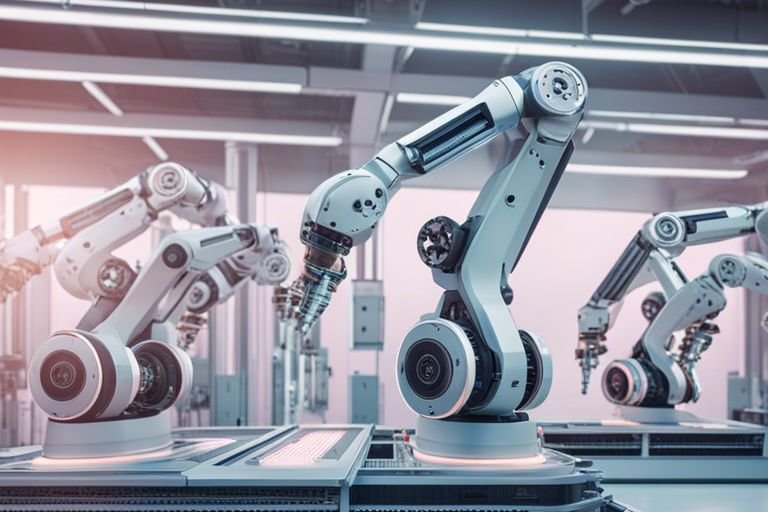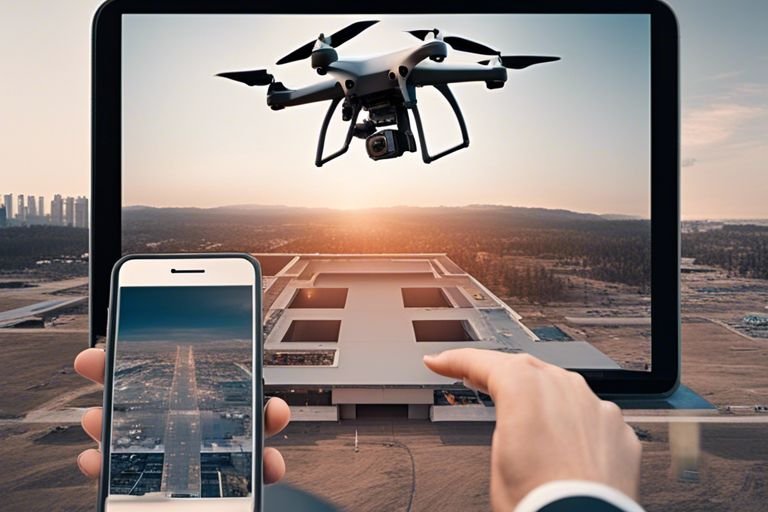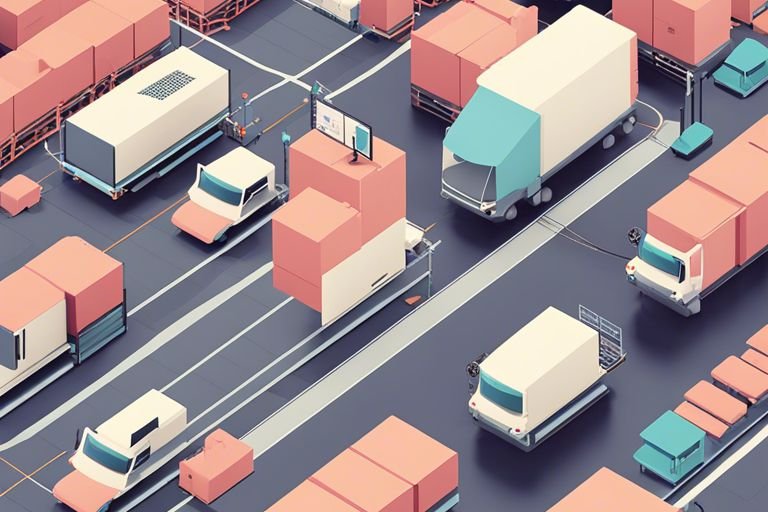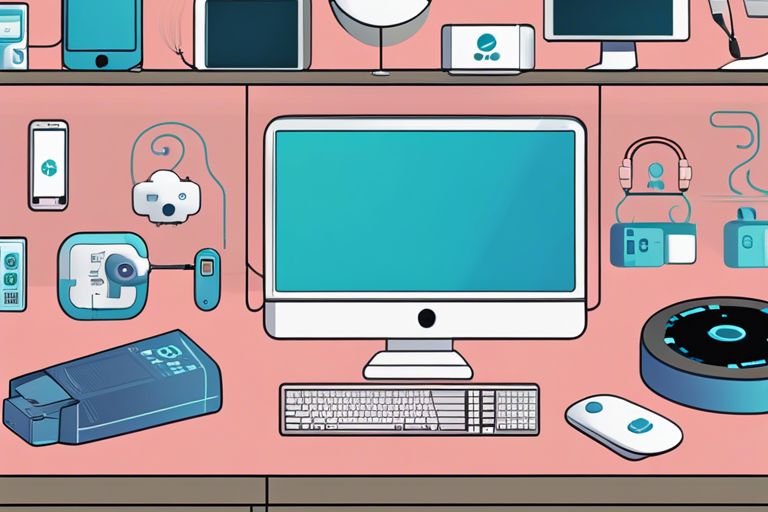What Are the Latest Trends in ERP Technology for 2024?
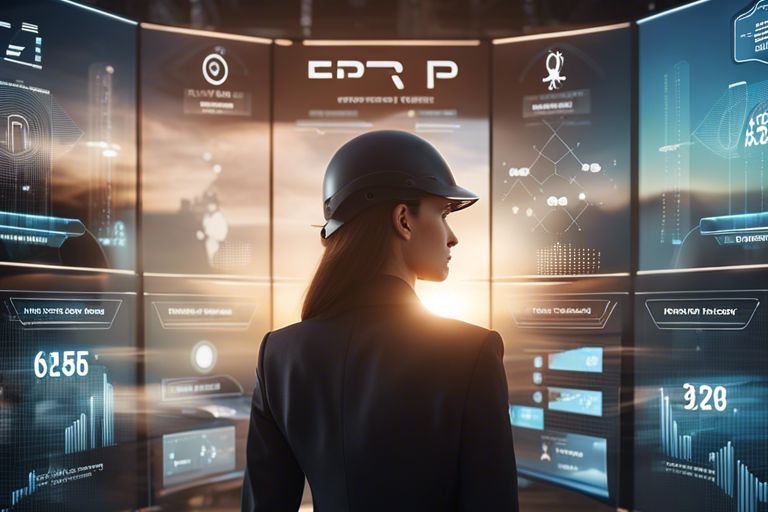
Eager to stay ahead of the curve in the rapidly evolving world of enterprise resource planning (ERP) technology? Look no further than this comprehensive guide to the latest trends set to make waves in 2024. From the rise of artificial intelligence and machine learning to the growing importance of cloud-based ERP solutions, we’ll explore the key developments shaping the future of ERP technology. Whether you’re a business owner, IT professional, or industry analyst, this insightful overview will equip you with the knowledge you need to make informed decisions and drive success in the ever-changing landscape of ERP technology.
Key Takeaways:
- AI and Machine Learning Integration: ERP systems will increasingly incorporate AI and machine learning to automate processes, improve decision-making, and provide predictive analytics.
- Cloud-Based ERP Solutions: The trend towards cloud-based ERP solutions will continue to grow, offering greater flexibility, scalability, and accessibility for businesses of all sizes.
- Enhanced Security Features: ERP technology will be focusing on integrating advanced security measures to protect sensitive data and reduce the risk of cyber threats.
Integration with Emerging Technologies
One of the latest trends in ERP technology for 2024 is the integration with emerging technologies. As businesses continue to embrace digital transformation, it has become essential for ERP systems to seamlessly integrate with emerging technologies to stay ahead in the market.
ERP and Artificial Intelligence
Technologies such as artificial intelligence (AI) are revolutionizing the way ERP systems operate. With AI, ERP systems can automate repetitive tasks, analyze data more efficiently, and provide valuable insights for decision-making. This integration allows businesses to streamline their operations and improve overall efficiency.
The Role of Internet of Things (IoT) in ERP
For businesses, the integration of Internet of Things (IoT) with ERP systems opens up a world of possibilities. IoT devices can collect real-time data from various sources, allowing ERP systems to gain valuable insights into the performance of products, personas, and subjects. This integration enables businesses to make data-driven decisions and unlock new opportunities for growth.
Cloud-Based ERP Solutions
Some of the latest trends in ERP technology for 2024 revolve around the advancements in cloud-based ERP solutions. As more and more organizations are moving their ERP systems to the cloud, the need for scalable and secure solutions has become increasingly important.
Advancements in Scalability and Security
Advancements in cloud-based ERP solutions are focused on enhancing scalability and security. With the ability to easily scale resources based on demand, organizations can ensure that their ERP systems can handle increased data and user loads. Additionally, robust security measures, including advanced encryption and multi-factor authentication, are being integrated into cloud-based ERP solutions to protect sensitive data from cyber threats.
Customization and Flexible Cloud Services
For organizations, the ability to customize and utilize flexible cloud services is a key trend in 2024. Cloud-based ERP solutions are offering more customization options to tailor the system to specific business processes and requirements. Additionally, flexible cloud services allow organizations to choose the level of service that best fits their needs, whether it’s a public, private, or hybrid cloud environment.
Services related to customization and flexible cloud services are providing organizations with the agility and adaptability they need to stay competitive in the ever-evolving business landscape. By leveraging customizable features and flexible cloud options, organizations can optimize their ERP systems to meet their unique business objectives and drive growth. With the latest advancements in cloud-based ERP technology, organizations are empowered to make strategic decisions and achieve operational excellence.
User Experience and Mobility
Not only is user experience (UX) becoming increasingly important in the realm of enterprise resource planning (ERP) systems, but so is the need for mobility. As we look towards the trends in ERP technology for 2024, it is clear that the focus is shifting towards creating seamless and intuitive user experiences, while also ensuring accessibility across various devices and locations.
Mobile ERP Applications and Accessibility
An essential trend in ERP technology for 2024 is the rise of mobile ERP applications and the emphasis on accessibility. With the growing reliance on mobile devices for business operations, ERP systems are evolving to provide users with the ability to access critical information and functionality on the go. This shift towards mobility not only enhances the productivity and efficiency of ERP users, but also opens up new opportunities for real-time decision-making and collaboration.
The Importance of User-Centric Design in ERP
User-centric design is gaining prominence in the ERP landscape, with a focus on creating interfaces and workflows that are intuitive and tailored to the needs of diverse user personas. In 2024, ERP systems are prioritizing the development of features that align with the way users naturally interact with technology, ultimately leading to increased user satisfaction and adoption rates.
Accessibility across multiple devices and user personas is a key consideration in user-centric design, ensuring that ERP systems can accommodate the needs of a diverse workforce and enable seamless interactions regardless of the user’s location or device.
“`
Data Analysis and Decision Making
After the advent of ERP technology, businesses have been able to gather and store massive amounts of data pertaining to their operations, finances, and customer interactions. However, the true value of this data lies in the ability to analyze it and derive actionable insights for informed decision making. In 2024, the latest trends in ERP technology are geared towards enhancing data analysis capabilities and empowering organizations to make data-driven decisions with greater precision and efficiency.
Real-Time Analytics and ERP
Analytics have evolved to include real-time data processing and insights, allowing businesses to monitor their operations as they happen and make instant decisions based on the most up-to-date information. This trend is being integrated into ERP systems, enabling organizations to access real-time analytics for various aspects of their business, including sales, inventory, and production. Real-time analytics within ERP systems are revolutionizing the way businesses operate, providing them with a competitive edge in today’s fast-paced market.
Predictive Analysis and Forecasting in ERP Systems
For businesses, the ability to anticipate future trends and outcomes is invaluable. With predictive analysis and forecasting integrated into ERP systems, organizations can leverage their data to predict future demand, trends, and potential risks. These advanced capabilities allow businesses to proactively plan and strategize, mitigating potential challenges and capitalizing on emerging opportunities. The integration of predictive analysis and forecasting in ERP systems is revolutionizing traditional decision-making processes and empowering businesses to stay ahead of the curve.
Furthermore, the incorporation of machine learning algorithms and artificial intelligence in ERP systems enhances the accuracy and reliability of predictive analysis. These technologies enable ERP systems to continuously learn from data patterns and refine their forecasting capabilities, providing organizations with unprecedented foresight into their operations and market dynamics.
“`
Industry-Specific ERP Trends
Now, let’s take a closer look at the latest trends in ERP technology for specific industries. As technology continues to advance, ERP systems are becoming more tailored to meet the unique needs of various sectors, such as manufacturing and the service industry.
Manufacturing and ERP Innovations
Industry-specific ERP solutions for manufacturing are incorporating innovative technologies such as Internet of Things (IoT), artificial intelligence, and machine learning. These technologies are revolutionizing the way manufacturers manage their operations, from supply chain management to production scheduling. With real-time data insights and predictive analytics, manufacturers can optimize their processes, reduce downtime, and improve overall efficiency.
Service Industry and ERP Customization
Industry-specific ERP customization for the service industry is gaining traction, allowing companies to tailor their ERP systems to meet the unique demands of their businesses. Whether it’s scheduling appointments, managing customer relationships, or optimizing resource allocation, service industry ERP solutions are providing customizable modules to address these specific needs. This level of customization enables service industry companies to streamline their operations and deliver exceptional customer experiences.
Trends in service industry ERP customization include personalized customer portals, mobile functionality for field service workers, and integrated CRM systems. These trends are aimed at enhancing customer satisfaction and improving overall operational efficiency for service industry companies.
The Future of ERP Systems
For businesses, the future of ERP systems is looking more innovative and efficient than ever before. With advancements in technology and shifting business needs, ERP systems are evolving to meet the demands of the modern business landscape. From sustainability and green ERP to collaboration and social integration, the future of ERP systems is shaping up to be more dynamic and interconnected.
Sustainability and Green ERP
Future ERP systems are expected to prioritize sustainability and environmental impact. Green ERP solutions will focus on reducing carbon footprint, minimizing waste, and optimizing energy usage. With an increasing emphasis on corporate social responsibility, businesses are looking for ERP systems that can support their sustainability initiatives and help them achieve their environmental goals. This shift towards green ERP reflects the growing awareness of climate change and the need for businesses to operate in an environmentally conscious manner.
ERP Collaboration and Social Integration
Green ERP is not the only focus for the future of ERP systems. Collaboration and social integration are also expected to play a significant role in shaping ERP technology. Businesses are increasingly recognizing the importance of collaboration and communication within their ERP systems. In the future, ERP systems will be designed to seamlessly integrate with social platforms and facilitate real-time collaboration among employees, partners, and customers. This trend reflects the evolving nature of work and the importance of interconnectedness in today’s business environment.
Plus, ERP systems will also enhance collaboration between different departments, enabling more efficient decision-making and problem-solving. This shift towards social integration within ERP systems aligns with the growing emphasis on teamwork and connectivity in the modern workplace.
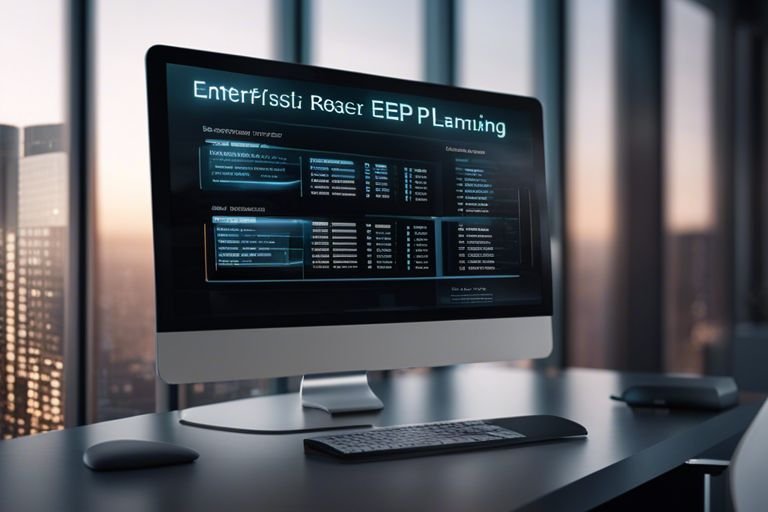
Summing up the Latest Trends in ERP Technology for 2024
As we look ahead to 2024, it is clear that ERP technology is rapidly evolving to meet the changing needs of businesses. Some of the latest trends that are expected to dominate the ERP landscape in 2024 include the rise of artificial intelligence and machine learning, increased emphasis on cloud-based solutions, greater integration with IoT devices, and the continued focus on data security and privacy. These trends are all aimed at helping organizations streamline their operations, make more informed decisions, and adapt to the ever-changing business environment. As technology continues to advance, it is essential for businesses to stay abreast of these trends and leverage them to remain competitive in the market.
